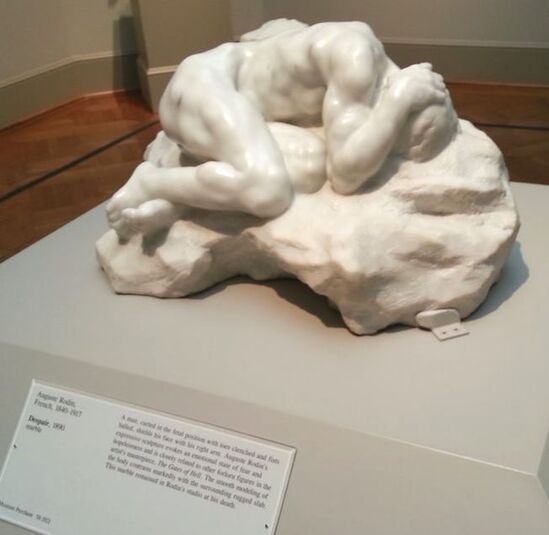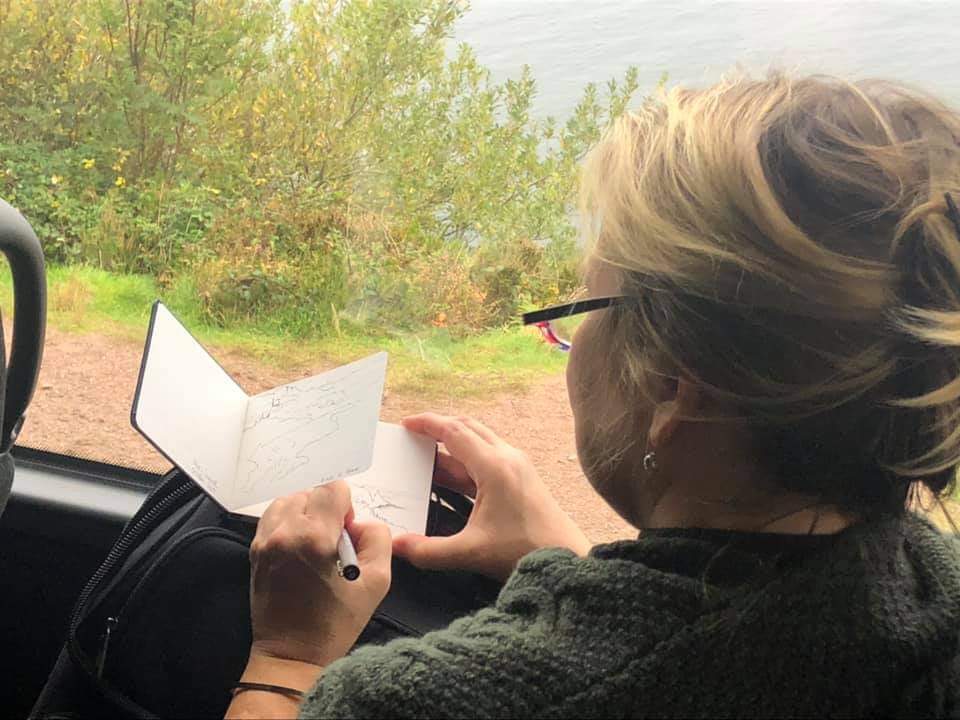|
Dear Disciples,
As I write these words war has been waging in Ukraine for several days. We see images of civilians huddling in transit stations, bombed out streets, and lines of refugees stretching for miles. My heart aches for the needless suffering we are witnessing. As our newsfeeds and television screens are constantly announcing “Breaking News,” it can be tempting to fill our hours with the latest updates. I confess I have spent many hours doom scrolling on Twitter, refreshing my screen in a never ending search for the latest news. Our access to instant communication, to livestreams on social media and correspondent updates on the news while connecting us in radically new ways can also paralyze us. This topic came up in a recent episode of a favorite podcast of mine, Mid-faith Crisis, co-hosted by a UK Baptist minister, Joe Davis and writer Nick Page. The two discussed their own feelings of powerlessness with respect to the news. Should we stop watching the news altogether to protect our mental health? We do have a responsibility to the world and to other human beings to be aware, and yet can we do so without fixating on things we cannot change? My takeaway from the podcast conversation was a personal intention of setting limits on the amount of time I spend consuming news, including turning off phone notifications. In a way this is learning to practice that powerful line from Reinhold Niebuhr's Serenity Prayer, “God, grant me the serenity to accept the things I cannot change, courage to change the things I can, and wisdom to know the difference.” In our Lent at Home kits you will find a reflective assessment tool, utilizing a wellness wheel. I invite you to use this assessment as we enter into Lent. We have additional copies available at the church office. I’ve been working my way through the wheel in February, and I’ve found the process enlightening. May this season of Lent a time of expansive living, as we welcome God’s dreams for ourselves and for the world.
0 Comments
Take a plane to London.
From King's Cross take the direct train to York. —Joseph Stroud, “Directions” (Of This World, © 2009 Copper Canyon Press) Almost a year ago this month I flew across the country, blissfully boarding a packed airplane before masks and hand sanitizers became necessary in every public space. My plane landed late at night at the Bluegrass Airport in Lexington, where the ever smiling Genny Jenkins was waiting to greet me. During that stay I met many of you in person, listened to your stories and your dreams for this congregation and community. We worshiped together in the sanctuary, and after you voted to call me as your next pastor, we shared a wonderfully traditional potluck in the fellowship hall. That Sunday afternoon I drove back to Lexington, got back on another crowded plane, and headed back to the Northwest to prepare for my move to Kentucky. For many of you that’s the last time we saw one another face to face. The story of 2020 unfolded unlike anything we might have imagined that February Sunday. So much has changed, and we have too. We’ve learned to be flexible and nimble in our common life together. We’ve extended more grace to others and to ourselves. We’ve learned to laugh when we forget to unmute ourselves on Zoom. We’ve learned prayer, study, and community aren’t limited by the space in which we gather, be it in a building or online. And we’ve discovered just how much our relationships to one another matters to us. As we enter into another season of Lent which will still be shaped by COVID-19, this time we have the gift of intentionality in our living through the season. Even as some of us begin to receive vaccines, we know we must still practice physical distancing to keep one another safe. I invite you to receive the opportunities we’re creating for Lenten spiritual practices, finding what may speak to you in this time and make it your own. Joseph Stroud’s poem Directions, in the first half sounds much like simple directions to get to a pub in the north of England and to set out on a walking trail in the Yorkshire region. And then the poem turns, and it suddenly dawns on the reader that this is a walk of memory and imagination, Stroud continues: You'll walk the freshness back into your life. This is true. You can do this. Even now, sitting at your desk, worrying, troubled, you can gaze across Middlesmoor to Ramsgill, the copses, the abbeys of slanting light, the fells…. We can do this. Sitting at our desks, worrying or troubled, we can find refreshment and hope in these days. This weaving together of memory, tradition, and spiritual imagination is not some weak substitute for worship and community, it is another way of being in a faithful community together, as we make our way, “step by step, into grace.” |
AuthorA native of Illinois, Rev. Nancy Gowler lived for 26 years in the Pacific Northwest. She joined the ministry of First Christian Church in Morehead, KY, in July of 2020. Archives
January 2023
Categories
All
|


 RSS Feed
RSS Feed
